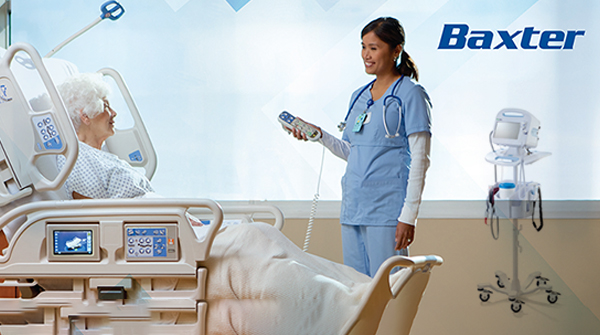Asep Inc. Announces Ground-breaking A.I. Technology for Rapid Identification of Severe Sepsis and Improved Superbug Therapies
3 June 2023
Asep Medical Holdings Inc. announces the ground-breaking use of artificial intelligence to rapidly identify infections at increased risk of severe sepsis. The method was developed by the Hancock Lab, under the guidance of Dr. Robert E.W. Hancock, Killam Professor at the University of British Columbia (UBC), and analyzes the dysfunctional immune responses involved in sepsis to identify sets of genes that help assess whether a patient will acquire severe sepsis.
"We have harnessed AI to obtain practical outcomes in areas of high unmet medical need, including identifying severe sepsis cases. Sepsis is a severe disease responsible for one in five deaths worldwide1 and essentially all deaths from severe COVID-19. Typically, a patient arrives in the emergency room feeling profoundly ill, with fairly non-specific symptoms. Physicians are in a 'look-and-see' game for the first 24–48 hours. But for every hour that treatment is delayed, the risk of death increases by as much as 7.6%2, highlighting the need for rapid detection," says Dr. Hancock, Chair and CEO of Asep Inc. "Using AI, our team was able to identify sets of genes that help assess whether a patient, including those with pandemic diseases like COVID-19, will acquire severe sepsis3,4," continued Dr. Hancock. "In early clinical studies3,4, the SepsetER test has worked extremely well, and our bioinformatics scientists have now applied AI to report the outcome of the test to attending physicians. We are preparing for a confirmatory clinical trial at St. Paul's Hospital in downtown Vancouver, BC, to evaluate the performance of the SepsetER test on sepsis patients."
This confirmatory clinical trial will precede a larger study to demonstrate the performance of SepsetER TM, the Company's sepsis diagnostic technology, and compare it to currently available sepsis tests in anticipation of filing a 510(k) submission with the FDA seeking clearance for the test as a medical device. Asep Inc. anticipates that the 510(k) application process will be complete in Q1 2024, and the test should be available to hospitals soon after.
AI was also used to deconvolute the extreme complexity1 of sepsis, which has limited treatment to date. In recent clinical studies published by the Lancet Journal EBioMedicine3 and the Nature Journal Scientific Reports4, AI methods were applied and proved to be 97% accurate in identifying which of the five sepsis endotypes occurred in each patient. These biomarkers also worked in the ICU, where it was shown that one endotype was particularly deadly, with a mortality rate of 46%. "Deciphering the underlying mechanisms of sepsis is key to risk assessment and devising novel treatments for sepsis," stated Hancock. "This important observation will form the basis of a second diagnostic test in development."
THE FIGHT AGAINST BIOFILMS
The failure of antibiotics5 due to delayed diagnosis of sepsis, the high prevalence of recalcitrant biofilm infections and increased antibiotic resistance, compounded by declining antibiotic discovery, are also among society's most pressing health issues. Dr. Hancock and his team have applied AI to discover a host of antimicrobial peptides (strings of a dozen or so amino acids) representing a promising new class of antibiotics6. Asep Inc. has adapted these AI methods to address antibiotic failure associated with biofilms, a multi-cellular growth state of bacteria adaptively resistant to conventional antibiotics7,8.
Antibiofilm peptides offer a host of real-life applications7, including wound bandages, sinusitis, oral rinses and antibacterial medical instrument coatings, to name a few. Dr. Hancock's team used peptide array technology to prepare large semi-random peptide libraries created using the amino acid composition of the most active peptides. The resultant data was used with an AI technique called artificial neural networks to develop quantitative in silico models of antibiotic activity6. Random tests proved remarkably effective in predicting the activity of 100,000 virtual peptides. The best peptides, representing the top quartile of predicted activities, were effective against a broad array of multidrug-resistant "Superbugs" with activities that were equal to or better than four highly used conventional antibiotics, more effective than the most advanced clinical candidate antimicrobial peptide, and protective against Staphylococcus aureus infections in animal models. Similar methods were used to derive excellent antibiofilm peptides. Asep is preparing to take the best of these peptides to the clinic.
"We use AI daily as a valuable tool in the battle against antibiotic failure. While others are trying to figure out the complexities of AI and how it can be used in their development processes, we are already using it confidently and with amazing success in our diagnostic and therapeutic offerings. We feel that the Asep Inc. scientific team is a true leader in leveraging AI's power to improve human health," said Dr. Evan Haney, Chief Scientific Officer of Asep Inc.
Source:prnewswire.com

